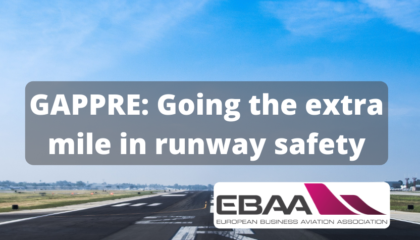
Pilot Peer Support Programmes: one month after
Due to the COVID19 pandemic across the globe, the implementation deadline for Pilot Peer Support Programmes (PPSP) was postponed to February 2021, allowing operators to get a better feeling of how their crews feel about such an initiative.
As the implementation deadline of Pilot Peer Support Programmes (PPSP) came and went, we reached out to our members to see how they are dealing with it and how are the intended users feeling about such an initiative. While it might be too early to draw any conclusions, there is already some preliminary feedback on the implementation process, approvals and pilots’ perception and uptake.
What are Pilot Peer Support Programmes?
A Pilot Peer Support Programme (PPSP) can be defined as a formal structure or system whereby a pilot needing help can get support with mental wellbeing or life stress issues from a dedicated and trained colleague in a confidential setting. A PPSP may also be accessible to family, colleagues or friends of a pilot who have serious concerns about his/her fitness to fly. Such concerns are dealt with appropriately, with flight safety and the pilot’s welfare being the critical factors
Aviation Authorities are lagging behind requirements
Although the requirement to have a PPSP entered into force more than a month ago, the deadline found some of our members still waiting for approval from their National Aviation Authority (NAA).
NAAs are heavily understaffed in all departments, and it is a growing concern among all operators because they struggle to keep up with all the changes. Because of all the ongoing EASA regulatory changes (as well as ongoing projects within each company), operators are submitting manuals and documentation for approval almost every week.
Some operators had their updated Safety Management Manual approved with only a few weeks of delay, but many are still waiting. This means that, while the peer support programmes are now ready to be implemented, the delay in approvals also puts the training schedule for their peers under the sign of uncertainty.
Legislative misalignment
In some countries, there is still a discrepancy between the national legislation and the EASA regulation concerning the alcohol and drug testing protocol.
Moreover, legal issues are stemming from the PPSP escalation process towards the Aviation Medical Examiner (AME) and the NAA. According to national laws in most countries, medical professionals are only allowed to communicate personal information to prosecutors and not to another public service. Concretely, if a doctor or psychologist suspects a pilot of being mentally unfit for duty (e.g., suspicion of suicidal thoughts), they are legally not allowed to contact the AME or the NAA, as they must notify prosecution first. This goes in direct opposition to the intended role of a Pilot Peer Support Programme.
Peer perception and uptake
Based on the conversations EBAA has had with operators, the general feeling at the company level is that this project is an example of an airline-based decision from EASA, which is not commensurate for Business aviation operators under this format.
Under the auspices of anonymity, quite a few Business aviation pilots admitted to thinking that this program is a reactionary move following the Germanwings accident and thus deemed it useless and lacking any benefits for the Business aviation community. There is still a lot of fear of repercussions and a stigma around topics such as psychological and mental health and this is an issue not unique to Business aviation. The question as to the effectiveness of an imposed program in solving psychological issues as opposed to the general destigmatisation of mental health remains to be seen.





